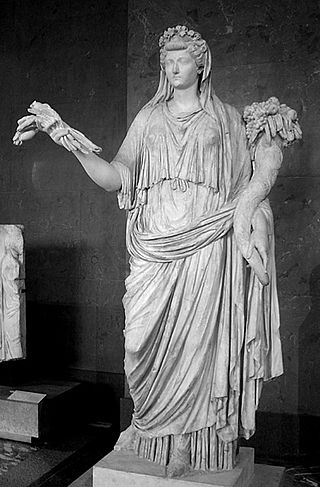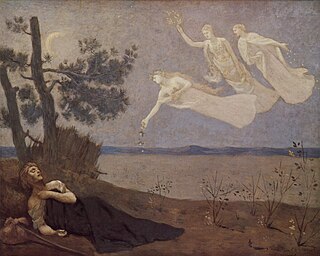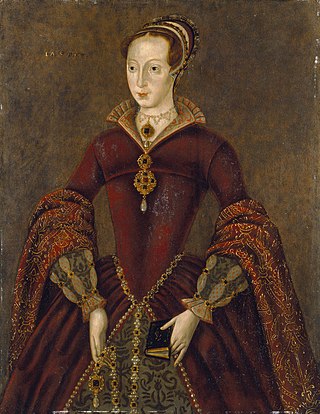Related Research Articles
Irish commonly refers to:
Roma or ROMA may refer to:

Lucy is an English feminine given name derived from the Latin masculine given name Lucius with the meaning as of light. Alternative spellings are Luci, Luce, Lucie, Lucia, and Luzia.
Nicola or Nichola is a Latinised version of the Greek personal name Nikolaos (Νικόλαος), derived from the nikē meaning "victory", and laos meaning "people", therefore implying the meaning "victory of the people". Nicola is both a male and female name, depending on cultural norms.
Berber or Berbers may refer to:
Beata or Beate is a female given name or Portuguese surname that occurs in several cultures and languages, including Italian, German, Polish, and Swedish, and which is derived from the Latin beatus, meaning "blessed". Variants include Bea, Beade and Beáta. The name may refer to:
Yvonne is a feminine given name, the female form of Yvon, which is derived from the French name Yves and Yvette. It is from the French word iv, meaning "yew". Since yew wood was used for bows, Ivo may have been an occupational name meaning "archer". Yvonne/Ivonne is also a Spanish girl name.

Patricia is a feminine given name of Latin origin. Derived from the Latin word patrician, meaning 'noble', it is the feminine form of the masculine given name Patrick. Another well-known variant is Patrice.
Niamh is an Irish feminine given name, anglicised as Neve, Nieve, Neave, Neavh or Neeve.

Barbara is a given name used in numerous languages. It is the feminine form of the Greek word barbaros meaning "stranger" or "foreign". In Roman Catholic and Greek Orthodox tradition, Saint Barbara was imprisoned in a tower by her father. She was then martyred by her father when she refused to renounce Christianity. According to legend, her father was then punished with death by lightning. As such, Saint Barbara is a protectress against fire and lightning. Early Christians occasionally referred to themselves as "barbarians" in opposition to the pagan Romans and Greeks. The story of Saint Barbara is said to have been an inspiration for the fairy tale Rapunzel and other European stories that feature a maiden in a tower.
Denise is a female given name. Dionysus is the Greek god of wine, and the name Denise means "to be devoted to Bacchus."

Aisling is an Irish language feminine given name meaning "dream" or "vision". It refers to an aisling, a poetic genre that developed in Irish poetry during the 17th and 18th centuries. There is no evidence that it was used as a given name before the 20th century. The name is included in Reverend Patrick Woulfe's 1923 collection of Irish names, with the comment that the name was in use in Derry and Omeath.

Jane is a feminine given name. It is the English form of Jehanne, the Old French feminine form of Iohannes, a Latin form of the Greek name Ἰωάννης (Iōannēs), which is ultimately derived from the Hebrew name יוֹחָנָן (Yochanan), a short form of the name יְהוֹחָנָן (Yehochanan), meaning "Yahweh is merciful".
Luce is an American, English, Irish, Scottish, Welsh, French and Italian surname. It is also a French and Italian feminine given name, variant of Lucia and Lucy, or masculine name, variant of Luc. Meaning of given name Luce is "light".
Una is a feminine given name with various origins. As used by Edmund Spenser in The Faerie Queene, the name is derived from the Latin unus, meaning one. The Filipino word "una" meaning "first" is also derived from this Latin root. This is also the meaning implied for the given name of Star Trek character Una Chin-Riley, commonly called Number One.
Cara is an Irish feminine given name meaning "friend". It is also an English, German and Italian language feminine given name from the Latin cārus meaning “darling, beloved, dear, loved one”. It is also a Danish, Norwegian and Swedish feminine given name that is an alternate form of Kara as well as a short form of Carola, Carolina, and Oscara.
Lidia is a feminine given name. It is the Greek, Italian, Polish, Romanian, and Spanish transcription of the name Lydia.
Christina or Cristina is a feminine given name. It is a simplified form of the Latin Christiana, and a feminine form of Christianus or a Latinized form of the Middle English Christin 'Christian'. Short forms include Chris and Tina. The name is ultimately derived from the original Greek form of the name, Χριστίνα. The name Christina is most commonly used in the Christian religion.
Stefania [in all languages except for Polish pronounced like Ste-pha-nee-ah] is a female name in Belarusian, Bulgarian, Croatian, Czech, Greek, Stefánia Hungarian, Italian, Romanian, Polish, Serbian, Macedonian, Slovak, Slovene, Ukrainian and Russian, originating from Old Greek meaning crowned or the winning.
Ljuba is a Slavic given name. In the Serbian language, it is best known as a masculine name, cognate to Ljubomir or Ljubo. In other Slavic languages it's more often a feminine name, cognate to Lyubov, and also spelled Lyuba, Luba, Ľuba (Slovak).
References
- ↑ Hanks, Patrick (2003-05-08). Dictionary of American Family Names: 3-Volume Set. Oxford University Press, USA. p. 216. ISBN 978-0-19-508137-4.